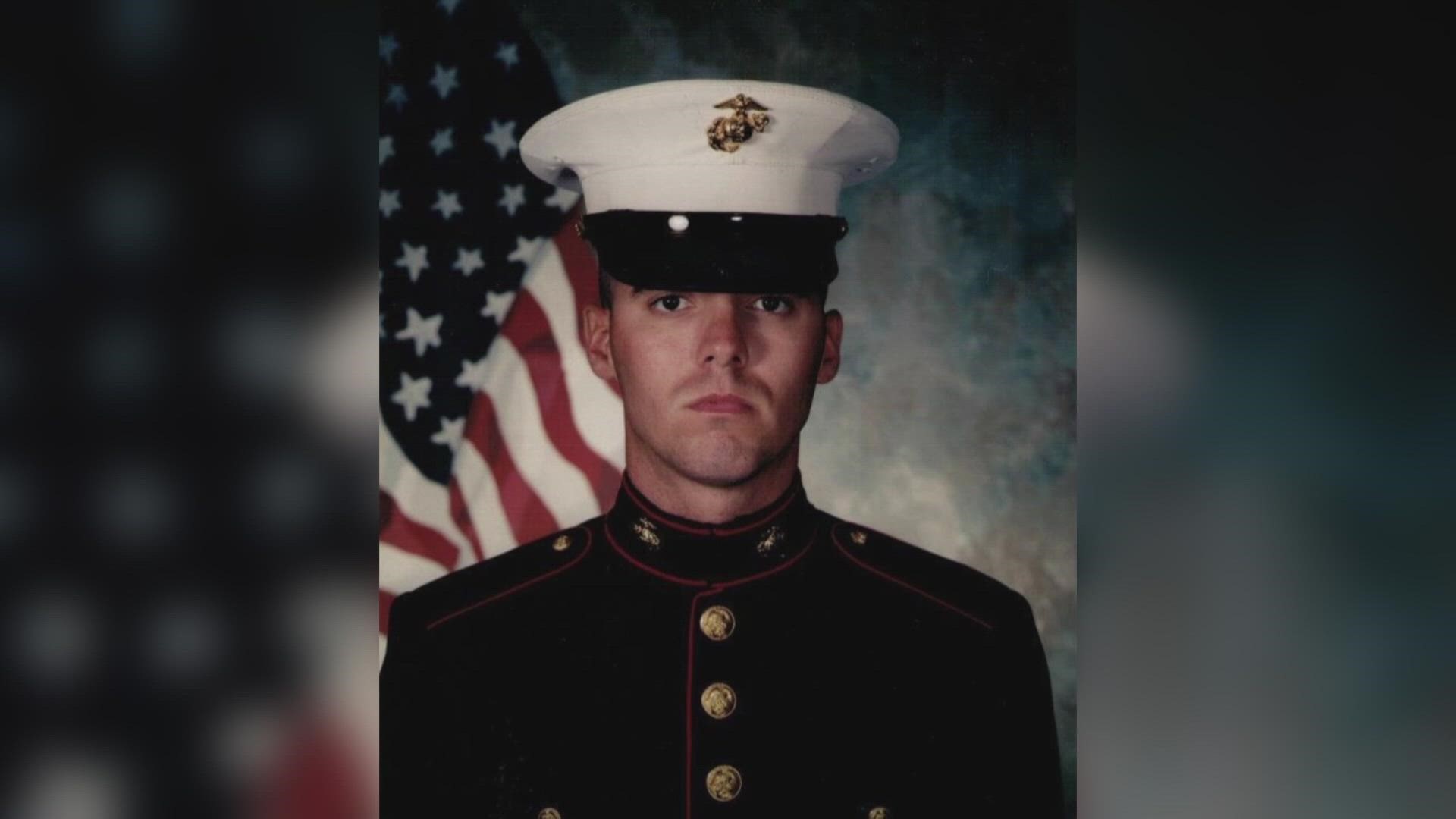TOLEDO, Ohio — When retired U.S. Marine Jeff Lindquist got out of the U.S.M.C. in 2006 he said he had to battle with mental health issues and standard treatments did not work for him.
"I had tried pretty much everything the VA had to offer - probably a year or two or possibly more, and I was going nowhere fast and wasn't sleeping," said Lindquist.
Around a decade ago, Lindquist said his peer and flight doctor introduced him to Transcranial Magnetic Stimulation (TMS). The innovative treatment uses magnetic fields to stimulate brain neurons, changing how and when they are released, and helping ease depression and PTSD.
Lindquist said after his first half-hour treatment he was finally able to sleep, something he struggled with nightly.
"I literally laid down and I didn't wake up until like 7 or 8 o'clock in the morning and my wife's like, 'you didn't wake up, how many pills did you take last night?', and I'm like, 'I didn't take any," he said.
Lindquist would continue to go several times a week for the next few weeks until he was able to go as needed.
Andy Herf, President of Toledo-based government firm, Shumaker Advisors said seeing the effects on other Veterans made him want to be more involved in making the treatment more accessible.
In 2019, with the help of former Navy SEAL and Ohio Senator Frank Hoagland and others, they were able to pass a budget amendment to fund it in Ohio, and now are continuing to expand TMS even more.
"Ultimately our goal is to get this covered by insurance companies because really it could be ubiquitous. Really, this is something that could be used all over the county," said Herf.
He said the treatments have created a community among Veterans who want to see others helped.
"They've turned it inward and now they're helping each other," said Herf. "It's a really powerful thing to see."
Lindquist has only gone a handful of times since his initial treatments a decade ago, but he said others may need to "tune up." He wants to use his success story to bring awareness to his peers if they are struggling in their own recovery.
"It just redirected my life and improved the quality of life so much that they asked me to stick around and help other Veterans. Of course I did," said Lindquist. "It kind of gave me a new purpose and a new mission to identify those in need and get this out to them."
Lindquist said if you are a Veteran or family member who would like more information you can call 614-665-7905.
If you your someone you know is struggling with thoughts of suicide, you can reach out to the Suicide and Crisis Lifeline at 9-8-8.

